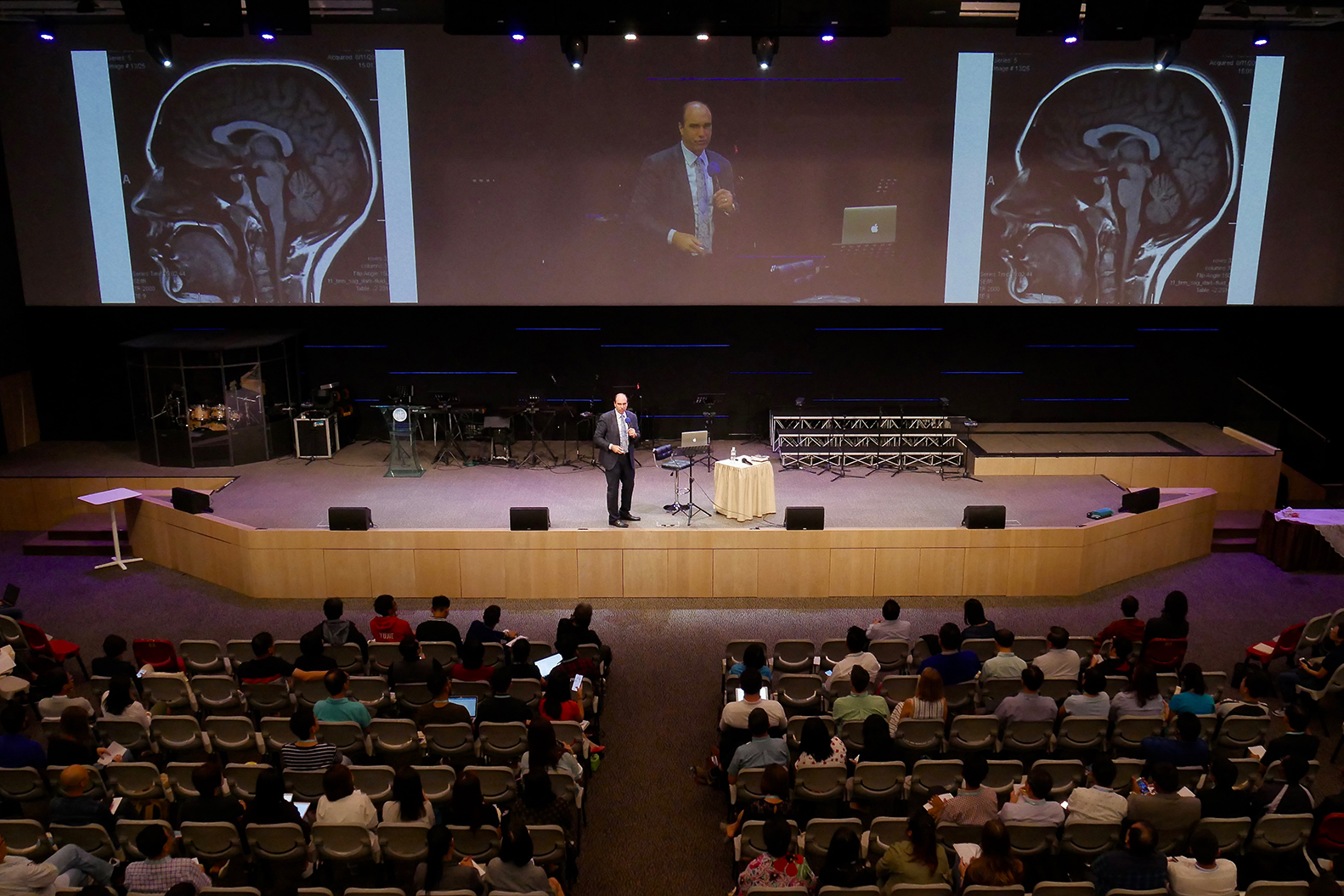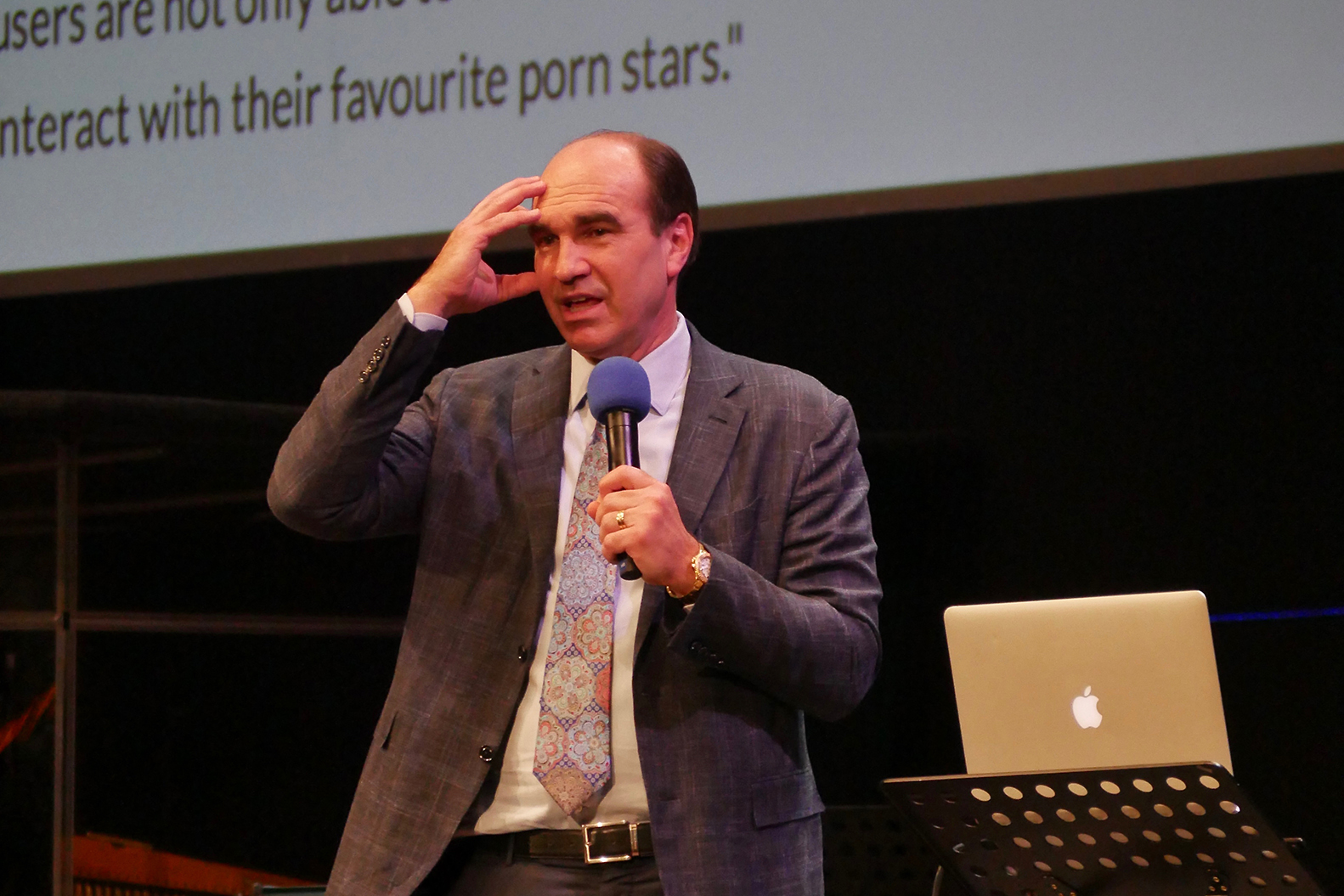It only takes half a second for porn to reach our brain. In comparison, alcohol takes 6 minutes while heroin takes 10-20 seconds.
These figures were shared at Set Free 2019, a national summit for church leaders to be equipped on sexuality.
“Pornography is a brain problem before it’s a moral problem,” said author and speaker Josh McDowell.
This runs counter to the view that porn is a harmless and mindless activity because unlike drugs, booze and cigarettes, it’s not a physical or chemical agent that can be ingested and affect the body.
HOW DOES PORN AFFECT OUR BRAIN?
Short answer: The more we give in to our cravings, the more we give up on our reasoning. This forms the basis of addiction.
Unpacking the impact of porn on the brain, Dr Donald Hilton, Adjunct Associate Professor of Neurosurgery at the University of Texas Health Science Center at San Antonio, explained that there are 2 main parts of the brain that affect behaviours – the frontal cortex and the brainstem.
The frontal cortex, or “the brake of the brain”, gives us the ability to judge, think and weigh. On the other hand, the brainstem produces dopamine, which powers the brain with desire.
This creates a tug of war between the part of our brain that tells us to think about it and the part of our brain that tells us to just do it.
The difference between people who visit porn once in a while and heavy porn users is that the latter has a bigger frontal disconnection in brain scans. In other words, the brain’s braking system doesn’t work as well.

So how does that happen?
“The brain is the source of behaviour, but in turn, it’s modified by the behaviours it produces,” Dr Hilton explained.
In medical terms, this is also known as neuroplasticity – a neurological footprint is created and imprinted in our brain every time a certain action or experience occurs.
The more we give in to our cravings, the more we give up on our reasoning.
As soon as we watch porn, a certain combination of cells will fire, creating a neurological pathway in our brains.
The same neurons will fire the next time we watch porn, creating a deeper bond each time. This means the more porn we watch, the more ingrained our response to the sexual cues become – like an automatic track, if you will.
As McDowell put it in layman terms: “For the most part, it’s not your choice. Something reminds you of the porn you saw, and the cells fire and you’ve got to go masturbate. Cells fire together and they tell you what to do.”
PORN, THE TEACHER
Citing research by Dr Mary Anne Layden, Director of Education at the Center for Cognitive Therapy at the University of Pennsylvania, McDowell elaborated on how porn affects our learning process:
- Pictures are compact carriers of meaning.
- Learning is deeper in the presence of arousal.
- Learning is deeper if we are rewarded for behaviour.
- Learning is deeper if the role model gets rewarded.
- Antisocial behaviours are learnt and expressed more if we’re anonymous.
Since porn is visually stimulating, sexually rewarding and often consumed in private, it makes for a perfect learning environment. Such images become tattooed to our mind for later recall, said McDowell.
The question we should ask ourselves is then: What exactly are consumers of porn learning?
Unfortunately, the most popular porn content today involves extreme aggression.
“Almost 90% of all popular porn scenes show violence towards women. Fifty percent shows verbal abuse, primarily name-calling,” Dr Hilton stressed. “And these are the male teachers for our young and old men!”
In fact, a previous study has shown that men pick up certain sexual scripts from porn, which spills over into their desire to exhibit similar male-marking behaviour in real life.
This concurs with a separate experiment done to test the correlation between observation and empathy. A monkey was shown a clip of another monkey eating peanuts and although it was not participating in the act, researchers found that this also fired the probe in the same area of its brain.
“This is what we call the mirror neurons,” Dr Hilton explained. “Humans have mirror neurons and it projects us to become what we are watching.”
“So when it comes to watching porn, these mirror neurons help us to resonate with the motivational state of other individuals appearing in visual depictions of sexual interactions.”
Addressing preconceived notions of porn being a moral issue, Dr Hilton said: “Every time I debate about pornography and its effects on the brain, I make sure that I leave religion out of it.
“If you talk about porn solely based on science, you’d see why we can’t justify that porn can be good.”
To understand more about porn and its effects, join a national conversation on pornography this weekend at UNVEIL 2019: Breaking Free, a sexuality summit for youth and young adults. Uncovering the myths behind porn, it will empower the next generation with practical and positive solutions in their fight with porn addiction.
Held at Suntec on Friday, 15 March (7:30pm-9:45pm) and Saturday, 16 March (9am-3:30pm), the conference will also feature acclaimed speakers like Josh McDowell, Dr Donald Hilton and Jessica Harris. Click here to sign up.









